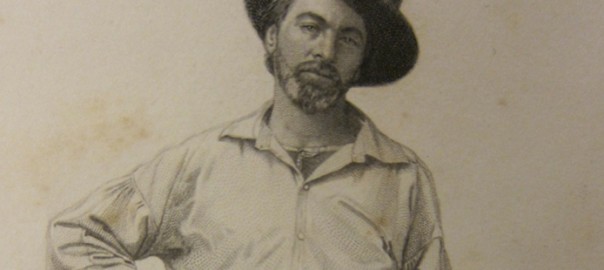Running even occupies a place in the Transcendentalist movement. In Leaves of Grass, Walt Whitman writes from the perspective of an observer, admiring the physical prowess of a passing runner.
Walt Whitman (1819–1892). Leaves of Grass.
“The Runner”
On a flat road runs the well-train’d runner;
He is lean and sinewy, with muscular legs;
He is thinly clothed–he leans forward as he runs,
With lightly closed fists, and arms partially rais’d
Notice that the spondaic emphasis in the first line, in which Whitman gives equal stress to all of the syllables in “flat road runs,” creates a steady rhythm that evokes that of running. The final words of the final line, in which Whitman presents his runner with “arms partially rais’d” suggest victory. However, that victory is only partial and never fully resolves. This suggests the ongoing nature of the run, whether literal or figurative. The race is never won or lost, and the run is never finished.
